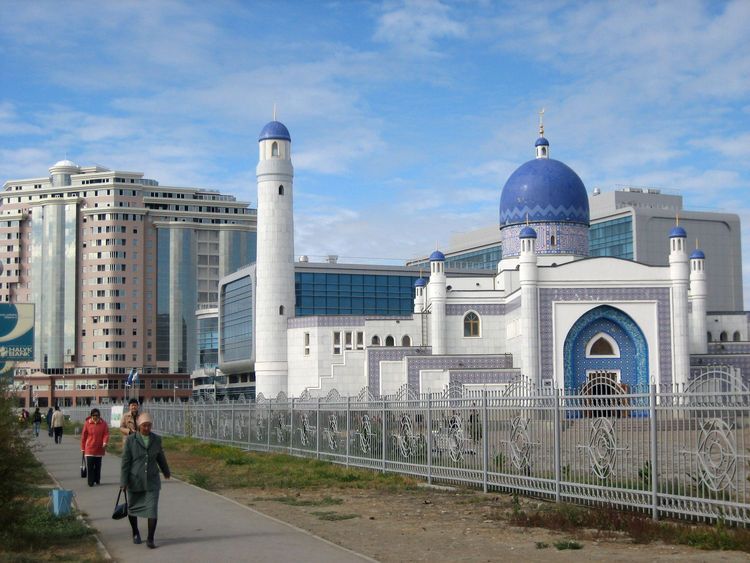 The Kazakh central bank, which plans to make the tenge more flexible to avoid devaluation, has enough reserves to keep it stable for several years, “even if there's strong pressure," the International Monetary Fund said.
The Kazakh central bank, which plans to make the tenge more flexible to avoid devaluation, has enough reserves to keep it stable for several years, “even if there's strong pressure," the International Monetary Fund said.
“I don't think there's any particular pressure right now on the tenge," Juha Kahkonen, deputy director of the IMF's Middle East and Central Asia department, said Monday in an interview in the Kazakh commercial capital of Almaty. “If the central bank chooses to the keep exchange rate unchanged, Kazakhstan has the reserves to do that."
Kazakhstan, part of a Russia-led economic bloc, has been under pressure to devalue its currency for a second time in two years after the ruble's 46 percent plunge against the dollar in 2014. The authorities allowed the tenge to weaken 19 percent last February as the economy of Kazakhstan's biggest trading partner slowed. After re-election last month, President Nursultan Nazarbayev promised to avoid “sharp" depreciation, saying the move to a free float will take at least five years.
Gross international reserves were $28.7 billion at the end of April, while the National Oil Fund contained $70 billion, data compiled by Bloomberg showed.
The central bank said last week that it will allow a more flexible exchange rate, without giving a timeframe for the move. The IMF is working with the bank to help smooth a switch to inflation targeting by 2020, according to Kahkonen.
Analyst Optimism
“Over time, exchange-rate flexibility will be helpful and it would be good to do it in parallel with the strengthening of monetary framework along the lines mentioned on the path to inflation targeting," he said. Kazakhstan has “very high foreign-currency reserves so it has the luxury of choosing the timing."
HSBC Holdings Plc and Jefferies International Ltd. have abandoned projections of an imminent tenge devaluation. There probably won't be a weakening of than 10 percent in the next few months, about half their previous forecasts, they said in May.
Lower oil prices and the onset of recession in Russia suggest greater exchange-rate flexibility will be needed for some countries to retain competitiveness, the IMF said in a report published Tuesday. Kazakhstan's economy is slowing: gross domestic product may rise 2 percent this year, down from 4.3 percent last year, the lender predicts.
The tenge strengthened to
Other regional currencies have also been suffering. Ukraine's hryvnia is this year's worst performer among more than 170 global currencies tracked by Bloomberg. It's followed by Azerbaijan's manat, Belarus's ruble and Georgia's lari.
In preparation for the switch to inflation targeting, Kazakhstan should establish by year-end a monetary-policy council, including independent experts, to make decisions on interest-rate movements, Kahkonen said. “It's good to have elements ready, so we're sure that when things start functioning they'll function well."
Source: bloomberg On a photo: An Atyrau Mosque, Atyrau city, Kazakhstan, Wednesday, October 11, 2006.
 В Атырау -10
В Атырау -10